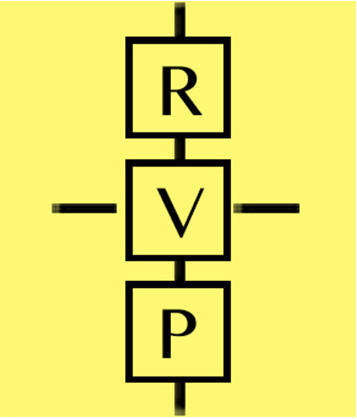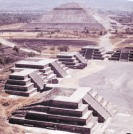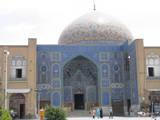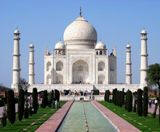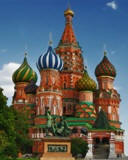|
Invitation
to an
International Conference
Re-Learning to be Human for Global Times:
Religious Pluralism: An
Hermeneutical Understanding for the 21st Century
December 22-23, 2016
Chennai, India
with
University of Madras
Chennai Philosophical Forum
Theme
In
this new millennium where science and technology play a
major role, it is natural to ask about the status of
religions. "What is the religious phenomenon of our time,
not only as it is manifested at the present, but as
unfolding into the future?" is the question which we must
address ourselves. To answer this question, we must extend
our view not only to a particular religion but also to all
religions in general. Religious phenomenon can no longer be
viewed within one religious tradition, within one
geographical region, even within one continent, or within
one hemisphere. It must be viewed globally, for the
religious phenomenon of our time is a global phenomenon. The
religions of the world can no longer live in isolation, nor
can they rightly live in tension or hostility. The organic
interaction of the human race is becoming so extensive that
the religions of the world must seek new ways of mutual
understanding and interrelation. Religions explain that
there is a need for the spirit of tolerance, catholicity of
outlook, respect for each other's faith and willingness to
abide by rules of self-discipline. This has to be both at
individual as well as group level. It
should be understood that different religious communities
are all part of one nation is not its strength and glory,
and should not, in any way, detract from national unity. It
would be a tragedy if for lack of tolerance and deviance
from the essential of strength and glory into a bane of
weakness.
In the Encyclical
Letter, Pope John Paul II explains the need for the
interrelationship between faith and reason. He says that
faith and reason are like two wings on which the human
spirit rises to the contemplation of truth. According to
him, through faith and reason, men understand the meaning of
life. If the inner meaning of life is not understood by man,
then life is not worth living. That is the reason why
philosophers of both East and West were interested in the
question of "Who am I?" This is nothing but search for
truth. Man has a purpose in life. It is a fact that in man
there is always a conflict between what
is and what
ought to be. This is the conflict between the lower ends
and the higher end. This double nature results in an
internal conflict between the flesh and the spirit, or the
lower and the higher selves. The
revelation of God's wisdom, which is based on faith, cannot
be tested by abstract reason.
In
the Hindu tradition, belief or faith is a mode of valid
knowledge, and not something different from it. Knowing from
an authoritative source is, as a rule, attended with
confidence. There cannot be any knowledge as long as doubt
prevails in the mind of the cognizer. A
doubt cognition cannot rank with knowledge. No information
gained is a valid knowledge for the cognizer unless he is
convinced of its truth. According to Vedanta, implicit
belief or faith usage acceptance if, or the reliance on the
words of the trustworthy, which need no verification. It is
other than credulity or gullibility. It is conviction of
truth and tantamount to valid knowledge. As such it is
different from feeling, volition, imagination or assumption.
Reason is implicit in faith. It is not unreasonable to rely
on the reliable.
In the broad context, there are
some fundamental concepts that we must accept, if religion
is not to become increasingly peripheral to the vast
majority of human beings but, on the contrary, develop into
a dynamic force for a new integration. The first is the
concept of the unity
of the human race. The
second concept of vasudhiva kutumbakam (the
world as a family) is now becoming a reality. The third
concept is the divinity
of man. The fourth is the essential
unity of all religions. Finally there is thereconstruction
of society. It is our
duty to work for the betterment of society. We must realize
that as long as millions in the world go without adequate
food and clothing, shelter and education, our theoretical
postulations regarding the divinity of man have little
relevance.
Eastern
religions show the path for unity and harmony. Hindu
philosophy and Chinese philosophy give a methodology for
this. The concept of tradition for example in the Analects plays
a dynamic role. It is approached from a moral or humanistic
perspective, which is reflected as follows: “It is man that
can make the Way great and not the Way that can make man
great”. What kind of man can enlarge the Way or Tao?
It is the “superior man” which serves as the moral idea in
the Analects. Like
Indian tradition, in Chinese tradition too, we find a
synthesis of both spiritual and the moral. Tradition
is a source of knowledge for Confucius. This knowledge,
mediated by tradition, has a sacred foundation for it is
rooted in the notion of Heaven’s ordinance. This knowledge
also calls for moral cultivation. Thus tradition relates a
sacred history. It opens up the sense of transcendence which
otherwise would be reduced to mere service of “spiritual
beings”.
Religion has a direct bearhing on social life. Participation
in social life is one of the essential aspects of religion.
The singificance of festivals in religion prove this.
Religion not only unites human beings with God, but also
unites human beings into one family.
Abstract
Please send 300 words and a brief CV to S. Panneerselvam [sipasel@rediffmail.com]
and [cua-rvp@cua.edu]
until September 30, 2016. Presentation of accepted papers
will be 20 minutes in length followed by 20 minutes
discussion. Well-developed full papers will be publisehd by
the RVP.
Logistics
There is no registration fee. Travel
expense and accommodation will be covered by
theparticipants.
Contact
S. Panneerselvam
Chennai Philosophical Forum
National Fellow, Indian Council of Philosophical Research,
New Delhi
Former Professor, Department of Philosophy
University of Madras
Chennai, India
sipasel@rediffmail.com
|
(all the materials on this website are copyrighted © by
the council for research in values and philosophy)
|

